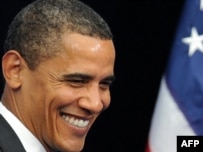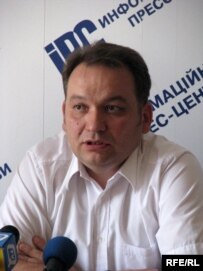Category: Eurasia Daily Monitor, Home Page, Turkey, Energy, Foreign Policy, Economics, Featured
Ankara has reportedly finally given the green light to the Nabucco project, and the intergovernmental agreement might be signed on July 13. When the news broke on the Russian deal with Azerbaijan (EDM, July 2), the Turkish media initially suggested it represented a lethal blow to Nabucco. Partly as a result of the Russian media’s manipulation, it was interpreted as a negative development to undermine the viability of Nabucco (www.nethaber.com, June 30).
On July 1-2, the Turkish Foreign Minister Ahmet Davutoglu visited Moscow to meet his Russian counterpart Sergei Lavrov. Before his departure, Davutoglu said that Turkey was unconcerned about the gas deal between Moscow and Baku, and supported enhanced cooperation between its neighbors. Davutoglu maintained that growing regional cooperation, especially in energy, will benefit everyone in the region, (Anadolu Ajansi, July 1).
Energy Minister Taner Yildiz made a similar point, arguing that the different projects are not alternatives and choosing one does not necessarily mean foregoing another. Yildiz added that the Russian-Azeri agreement would not affect Turkish-Azeri talks on the re-negotiation of the price for Turkey’s gas imports from Shah Deniz-I, and the country’s future imports from Shah Deniz-II (www.iha.com.tr, July 1).
In Moscow, Davutoglu held talks on bilateral relations as well as regional security issues. During their joint press briefing, Davutoglu emphasized that Turkey and Russia have developed close economic, commercial, cultural and political ties, while both countries could solve their differences through dialogue. Davutoglu told reporters that, though the date was not set, Russian Prime Minister Vladimir Putin would visit Turkey in the near future. Lavrov also underlined that the approaches of the two countries toward regional and global problems overlap.
Asked about the possibility of Turkey’s cooperation with Russia in the South Stream project, Davutoglu said: “There are no limitations and barriers on Russian-Turkish cooperation. We decided to consider all projects, including alternative energy projects. Therefore, I want to express our readiness to collaborate with Russia on South Stream or other projects in a transparent manner.” Responding to the same question, Lavrov said that if Turkey decided to join the project, the Russian side would prepare the necessary groundwork. He added that the Turkish energy minister will discuss the details with the Russian officials (Anadolu Ajansi, July 2).
Indeed, Yildiz also visited Moscow at the same time, at the invitation of the Russian Deputy Prime Minister Igor Sechin. As the co-chairs of the joint Turkish-Russian economic council, Yildiz and Sechin discussed bilateral economic relations. Yildiz raised issues relating to Turkish investors operating in Russia, particularly the “customs crisis.” Cooperation in energy issues occupied a large part of Yildiz’s itinerary. Energy related topics included the Russian offer to build Blue Stream II beneath the Black Sea, the current status of Turkey’s first nuclear power plant tender which was awarded to a Russian consortium, preliminary negotiations for additional gas purchases from Russia, and the South Stream project (Milliyet, July 1).
Sechin told Yildiz that Moscow has studied the feasibility of various possible projects to diversify energy supplies to Europe. He claimed that South Stream outperforms Nabucco in terms of its efficiency and economic feasibility, and invited Turkey to join the project. In particular, he claimed that Russia has enough proven gas reserves to feed South Stream. Nonetheless, the Russian delegation did not elaborate any specific role envisaged for Turkey in South Stream, which in its current form would not cross Turkish territory.
Yildiz repeated Ankara’s frequent argument that Nabucco and South Stream are not necessarily competitors: “This is a strategic package. It includes important projects that concern the two countries, our regions and our neighbors.” The Turkish government will evaluate all offers on the table, and choose the project that satisfies both countries’ interests, Yildiz added (Cihan, July 2).
These developments led to speculation that Nabucco was in crisis (www.cnnturk.com, July 2). On his return to Turkey, Yildiz dismissed Russian media reports that Moscow asked Ankara to withdraw from Nabucco. Moreover, Yildiz said that the negotiations on Nabucco were well advanced and the parties were close to signing a deal, though avoiding specifying a date. He added that the talks were being carried out by the foreign ministry and prime minister’s office (Hurriyet, July 3).
On the same day, European Commission officials announced that Turkey extended an invitation to its Nabucco partners to attend a ceremony in Ankara to sign the long-delayed intergovernmental agreement on July 13 (Anadolu Ajansi, July 3). The commission spokesman and Nabucco officials provided no further details as to whether Turkish demands were met to ensure its supply security, especially the controversial 15 percent clause, which had been stalling the negotiations (www.euobserver.com, July 3).
Davutoglu flew from Moscow to Bucharest at the invitation of his Romanian counterpart Cristian Diaconescu, where he met the Romanian president and other officials. He discussed bilateral partnerships and regional cooperation in the Black Sea. After emphasizing the flourishing ties between the two countries, Davutoglu praised their cooperation in the context of the Nabucco project. Though he noted that Nabucco and South Stream were not mutually exclusive, Davutoglu maintained “Nabucco is a strategic project for us. This will continue to remain our main priority” (Cihan, July 3).
Both Davutoglu and Yildiz declined to set a date but affirmed that the intergovernmental agreement will be signed soon. Sources close to Prime Minister Recep Tayyip Erdogan’s office, however, reportedly confirmed that the government plans to hold a ceremony on July 13. If the schedule of the heads of state from the other Nabucco partners, Bulgaria, Romania, Austria and Hungary permits, then the agreement will be signed in Ankara (Hurriyet, July 4).
What led to this turnaround in Turkey’s position and whether it secured concessions from its partners will be clarified if Ankara hosts the intergovernmental agreement next week. However, last week’s heavy diplomatic traffic, combined with Erdogan’s earlier contacts in Brussels, shows the extent to which Turkey wants to maximize its political and commercial gains by pitting the rival pipeline projects against each other.
https://jamestown.org/program/ankara-approves-nabucco-following-high-level-visit-to-moscow/








